- Home
- Anne Hampson
Second Tomorrow
Second Tomorrow Read online
SECOND
TOMORROW
Anne Hampson
Copyright © 2013 ROSETTABOOKS, LLC
ANNE HAMPSON
has the same impetuous streak as her heroines. It often lands her in the middle of a new country, a new adventure—and a new book. Her first-hand knowledge of her settings and her lively characters have combined to delight her readers throughout the world.
CONTENTS
Chapter One
Chapter Two
Chapter Three
Chapter Four
Chapter Five
Chapter Six
Chapter Seven
Chapter Eight
Chapter Nine
Chapter Ten
Chapter One
Clare Winter stood on the verandah of her bedroom and gazed across the tropical gardens to the sea, its colour in the late afternoon sun a kaleidoscope of blues and emeralds and yellows. Beyond the lagoon and coral reef other Out Islands lay strung over the face of the Atlantic just across the Gulf Stream from Florida. Flamingo Cay, a little world of its own no more than three and a half miles long, was on the Tropic of Cancer, and it was to this lush green island that Clare had come just over a month ago at the invitation of her brother, Phil, who had been manager of the island’s one hotel, the Rusty Pelican, for the past two years.
‘Go, my love,’ Clare’s mother had urged. ‘The change will do you good.’
What her mother really meant was that the change might help her daughter forget the tragedy that had been with her for almost five years, the tragedy that had occurred only a week before the day fixed for the wedding.
Five years. . . . Clare was no nearer forgetting that fateful day when her future brother-in-law had come to her home and asked for her father. Her fiancé, Frank, twenty-six and already a deputy-head at the school where he taught, had been taken ill at work and died in the ambulance on his way to the hospital. No one knew he had a heart complaint; he did not know himself, simply because the attack that killed him was the first he had had.
Clare had never looked at another man since, and she intended to remain a spinster, cherishing Frank’s memory until the day she died. She had no desire to forget, so why had she allowed her mother to persuade her to come here and take up the post of secretary-receptionist which Phil had offered her? He had written to their mother saying that Sally, the girl holding the post, was getting married and leaving the island, so the post would be vacant.
A small sigh escaped Clare as she turned, entering her bedroom. She ought not to have come. Every Saturday she had visited Frank’s grave, meeting his mother there and together they would put their flowers into the vases they had emptied and cleaned out. Mrs Weedall, a thin greying little woman who looked ten years older than her fifty-two years, would talk about her son, and she and Clare would attempt to comfort one another, but invariably one or both would leave the cemetery in tears. Clare’s mother would be furious, while her father would sit and brood and wish he were young enough to risk throwing up his job so that they could move to another district, away from the cemetery and the woman who was always reminding Clare that Frank had worshipped her and, had the positions been reversed, would have remained true to her memory forever.
‘That woman’s a blight on our daughter’s life!’ Clare had once heard her father exclaim. ‘I wish to God we could get her away—a thousand miles away!’
Well, she was a lot more than a thousand miles away, mused Clare, absently taking up a comb from the dressing-table. Although she had agreed to come here, giving up an excellent post to do so, she had no intention of allowing Frank’s image to fade from her memory. It was a lonely path she had chosen but one she meant to follow to the very end. She had known that her parents’ belief was that, if only she could get away from Mrs Weedall’s influence, she might find someone else and fall in love again. Nothing could be more remote than that possibility. . . .
It was at this juncture in her mind-wanderings that the strong stern face of Luke Mortimer intruded and she frowned as she began to take the comb through her honey-brown hair. Her hazel eyes were darkened as they stared back at her through the gilt-framed mirror. Luke Mortimer, friend of her brother, realtor from Miami who had bought some land on Flamingo Cay. . . . Clare determinedly erased his picture from her thoughts, drawing the comb again through her silken hair. Her face was pale, her skin like alabaster, its texture so fine that tiny blue veins were revealed by its transparency at her temples. Her forehead was clear and wide above delicately-arched brows; her cheekbones were high, and a little too prominent for real beauty. But there was a wealth of character in her features, an abundance of compassion in the wide, generous mouth. Her chin was firm and pointed, her neck long and smooth above gracefully-sloping shoulders. Of medium height, she had a figure that Frank had proclaimed to be perfect. And he should know, his mother had said, because his post was that of athletics instructor.
Putting down the comb, Clare turned once again, stepping through the window onto the verandah. She was restless, undecided about staying. . . . She was always restless and undecided whenever she allowed Luke Mortimer’s disturbing image to superimpose itself upon her memories.
The Tavern Restaurant at the Rusty Pelican had a distinctly nautical flavour, its decor including an assortment of rudders, props, ships’ wheels and anchors, heavy ropes knotted into fantastic and intricate designs and shapes. Various and unusual ships’ lamps added their light to that given off by the candles on the tables, and on one wall was a large mural of the Out Island Regatta.
Clare always had the evening off and tonight, as usual, she took her place at a table by the window that overlooked the marina. Graceful yachts tugged gently at their moorings; smaller motor-craft and fishing-boats littered the waterfront, while on the purple horizon a cruise liner lay silhouetted against the star-spangled dome of the sky. Clare was expecting to be joined by her brother, who usually dined around half-past eight or a quarter to nine. He arrived at length but instead of sitting down he leant over her shoulder and said, ‘Luke’s dining here with us, Clare, but we’re having a drink first in the lounge.’ His hand came beneath her elbow and she rose, automatically and at the same time reluctantly. She had no wish to spend the next couple of hours in Luke Mortimer’s company. But of course she could not voice her objection and she allowed herself to be ushered into the lounge and along to a table screened by a profusion of exotic plants in urns and other attractive containers.
Luke rose and swept a glance from her head to her feet before saying, ‘Good evening, Clare. Had a good day?’
She nodded and sat down. ‘Yes, thank you, Luke. Have you?’
‘Every day’s a good day.’ One corner of his mouth lifted in a sardonic smile. ‘Each new day is what you make it—’ He paused in thought. ‘Perhaps I should have said that each day is what you intend to make it.’
Clare set her teeth. Phil, alive to the situation that had been gradually developing between these two, diplomatically broke in to ask what they were drinking.
A few minutes later they were sipping well-mixed cocktails while they listened to the discourse going on around them. The history of the Out Islands was being talked about by one small group somewhere on their right, while another little company were arguing the best method of catching certain fish. A doctor from Miami was discussing rare seashells with the blonde in room twenty-nine, and Jim Dawson, a local, was expounding on the prospects of the crawfish season. Fish of incredible variety abounded in these tropical waters and inevitably they were a fisherman’s paradise. Half the fish eaten in the restaurant this evening would have been caught earlier in the day by the guests themselves.
‘Sir. . . .’ The soft respectful voice of one of the waiters broke into something Ph
il was about to say. ‘Mr Renshaw’s complaining again. . . .’
An impatient sigh from Phil before he spoke. ‘I’ll come along. He asked to see me, of course?’
‘Yes, sir. It’s the Steak Bordelaise this time. He’s insisting that it isn’t cooked correctly.’
Phil rose, excused himself and went off. Clare and Luke exchanged glances before their eyes followed the figure of Phil as he threaded his way between the tables, making for the high arched doorway leading into the restaurant.
‘Not an easy job, that of hotel manager,’ observed Luke, reaching forward to take up his glass.
‘Phil likes it all the same. You don’t get many like Mr Renshaw. He’ll be leaving on Thursday and we shall all be happy again.’
‘Happy?’ Again that sardonic lift of his mouth at one corner.
Clare said quietly, ‘My brother had no right to tell you so much about me.’
‘Don’t blame him altogether. When he said you were coming here to take up the post in the hotel I naturally showed a little interest, and asked if there was any special reason for your coming out here to him. As you’re aware, we haven’t known each other long and he’d never said much about his background, so I thought that perhaps you were alone in England, that you had no parents.’
Clare nodded absently. Phil had told her how he came to know Luke. It was just over a year ago, when the land was up for sale. Luke came over and stayed at the Rusty Pelican while he negotiated with the owner of the land. After making the purchase Luke then returned to his home in Miami Beach where he had an architect plan a house for him, and others which he intended to sell. He returned to Flamingo Cay several times to supervise the building of his house, and had moved in about two months ago. Clare had deplored the idea of the building programme, feeling that it was people like Luke who spoiled the beautiful islands of the world by their greed for money.
‘A man of thirty-five can’t retire,’ said Phil reasonably when, on learning that Luke was already a millionaire, she had said he ought to give up trying to increase his wealth. ‘His business is building,’ Phil had added, ‘and you can be sure that what he builds here will enhance rather than detract from the beauty you see around you.’
Undoubtedly the house already built was beautiful. Silver Springs, Luke had called it, because of the two natural springs that cascaded down the coral rocks that rose to one side of the grounds. An avenue of stately Royal Palms happened to have been conveniently placed to form a drive leading to a magnificent site where the lovely villa had been constructed around a courtyard of coral rock which dripped with exotic flowers—orchids, flame vines, ixora and hibiscus blossoms exploding in the lacy shade provided by the casuarinas and palms which were well established long before the land was up for sale. Tastefully landscaped gardens and manicured lawns surrounded the villa which had its own private beach of talcum-soft pink sand. Idyllic was the only description Clare could give to the house when, a week after her arrival at Flamingo Cay, she had been invited, with her brother, to a buffet party given to a few friends by Luke.
Suddenly, a little movement brought Clare back to the present and she looked at her companion.
‘Phil told you that I had been engaged, and that my fiancé had died a week before the wedding.’ A statement but she expected an answer.
‘Yes, he did,’ A slight pause ensued and then, pointedly, ‘It’s five years ago, Phil said.’
‘That’s right.’ Absently, she handled her glass but made no attempt to take it up. The chatter going on all around her could still be heard, and above it the strains of Bahamian music being softly relayed by a tape recorder.
‘It’s time you were picking up again.’ The bluntness of the words caused Clare to give a start. He had no right to adopt such a familiar attitude—and, in fact, for the first three weeks he had practically ignored her, speaking coolly if they should happen to meet, and more often than not looking through her rather than at her. But about a week ago he had changed in some subtle and yet dramatic way, beginning to take more interest in her than was necessary, and certainly more than she desired! ‘Aren’t you settled?’ asked Luke when she did not speak.
‘Here, you mean? In my job?’
‘That’s right. I’ve the impression that you don’t want to stay.’
Again she gave a start, his perception amazing her.
‘It’s true that I’m unsettled,’ she told him frankly after a pause. ‘I often feel I should never have come.’
‘Phil said you’d given up a good post to come here.’ There was a coldness in his voice now that was almost callous. He had no heart, she thought, no sensitivity to the loss she had sustained. He was unemotionally looking in from the outside, perceiving a situation which he regarded as stupid—that of a girl who was caught up in a sorrow which she could quite easily have thrown off. She glanced at him as he idly began to peruse the menu that had just been handed to him, noting the fine, aristocratic lines of his sun-bronzed features. He leant back in his chair, and to Clare there was a certain arrogance even in the posture he assumed; he was lounging comfortably, and yet his head was held upright, set on broad, immaculately-clad shoulders. His face was half-turned towards her, its finely-chiselled lines and contours sharply silhouetted even though the light all around was muted. The very dark brown hair, the faint arch of the brows, the flexed set of the mouth and jaw, the steely glints in eyes that could be grey but often seemed almost black . . . all these combined to give an impression of pride and power and great strength of character. An unusually arresting and handsome man, Clare was admitting, but a formidable one for all that. Phil had said his attitude towards women was cynical; he treated them as inferiors, regarded their fight for equality with something akin to contempt.
She said, still watching his face intently as he read the menu, ‘Yes, I did give up my job,’ but she immediately added that she would have little difficulty in obtaining another.
‘You’d better stay.’ Authority in his voice and a challenge in his stare as he regarded her over the top of the menu. Clare lifted her chin at his tone, her eyes glinting.
‘I shall do what suits me,’ she returned with a trace of defiance which, she thought, ought not to have been necessary.
‘I expect you shall,’ was his terse rejoinder as he glanced at the tilted chin, ‘regardless of whether or not it suits others.’
She frowned in puzzlement. ‘Others? My brother—and who else?’
‘Your parents. They’re exceedingly troubled about you.’
‘Phil told you far too much,’ she said tautly.
‘As I’ve said, I was curious as to why you should be taking the post here. Phil told me a few things. It wasn’t much.’
‘But enough to make you decide on giving me advice.’
He shook his head impatiently. Ignoring her words he said, looking directly at her, ‘Has it never occurred to you that your attitude is selfish?’
‘No,’ she flashed, colouring with indignation, ‘it hasn’t!’
‘Then you should think a little more deeply about it,’ he recommended. ‘From what Phil told me your father and mother are very unhappy people.’
She frowned and bit her lip. What he said was true, of course, but never had she stopped to think that there might be selfishness in her wanting to keep Frank’s memory green. Luke’s accusation troubled her, going deeper than was comfortable. Anger against him rose swiftly, anger that he should concern himself with what was not his business.
However, she had no time to say anything, for her brother came back and soon they were in the restaurant, sitting at the table by the window, Luke’s whole attention on the boats moored in the marina. Phil looked at his sister and smiles were exchanged. She was proud of him, always had been. Tall and slim and good-looking in a gentle, refined sort of way, he seemed all wrong as a bachelor because undoubtedly he would make a wonderful husband. But he had concentrated on his career, his ambition being to become manager of an hotel. He was making a great suc
cess of it and already there had been hints from his superiors that he would be given the management of a luxury hotel that was to be built on one of the larger islands of the Bahama group.
Luke turned presently and remarked on some of the yachts, mentioning their owners. Everyone here seemed to own a yacht, mused Clare, thinking of the beautiful vessel belonging to Luke which was moored at his private jetty down-beach from his house.
The starters came and when they were eaten Phil and Clare got up to dance, the calypso music being played by a native combo occupying a flower-bedecked platform at one end of the room. She was suddenly acutely conscious of Luke’s eyes following her. She saw them slide from her face to her figure—to her tiny waist where the turquoise-blue dress she wore fitted snugly before flowing out in an abundance of subtle folds that swayed as she danced. Something stirred within her . . . something she had known before and which angered her. That Luke’s presence and his interest should disturb the serenity of her mind was bad enough; but in addition he had the ability to superimpose his own image upon that of her dead fiancé, almost blotting out the picture she was ever striving to keep before her. She had considered herself immune to the attractions of any man, but she was having to admit that those of Luke Mortimer affected her in a way which created a deep and totally illogical resentment towards him.
She and her brother returned to the table for the second course. Phil had ordered turtle steak, and Clare grouper cutlets and a salad, while Luke was having a lobster ragout in the shell ‘Newburgh.’ When the meal was over Luke asked Clare to dance and she rose hesitantly, doubting if she could come up to standards which she guessed would be high. She felt his arm come about her, knew the cool touch of his other hand as he took hers. A quiver that was pleasant ran along her spine, while anger filtered into her mind. She wanted to hate him!—wished she could be told she was never to see him again, ever!
‘You’re very quiet.’ His voice was strong, as usual, but low, against her ear. She had the impression that his chin was touching her hair—deliberately. Perhaps he was a flirt, and he fancied his chance with her in spite of what he had been told by Phil.

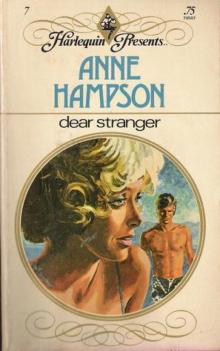 Dear Stranger
Dear Stranger Dangerous Friendship
Dangerous Friendship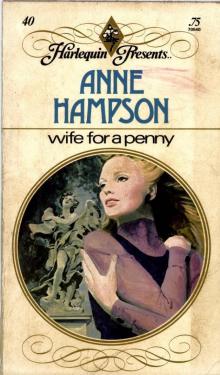 Wife for a Penny
Wife for a Penny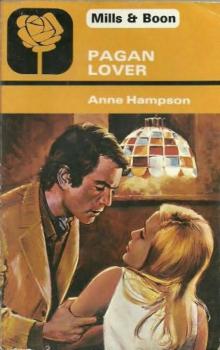 Pagan Lover
Pagan Lover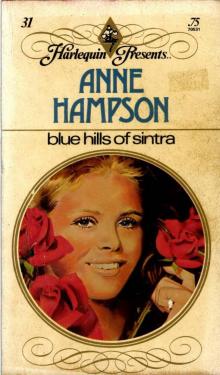 Blue Hills of Sintra
Blue Hills of Sintra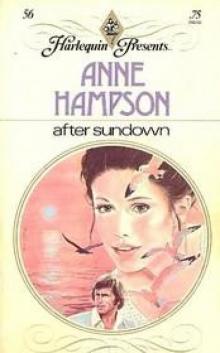 After Sundown
After Sundown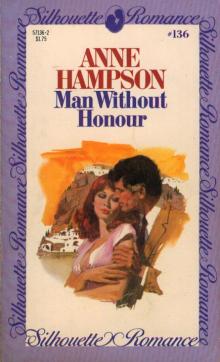 Man Without Honour
Man Without Honour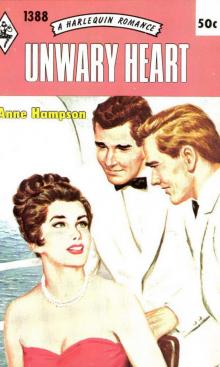 Unwary Heart
Unwary Heart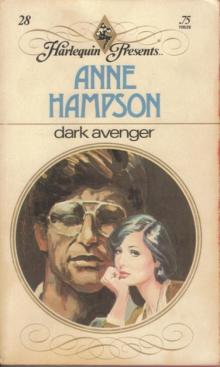 Dark Avenger
Dark Avenger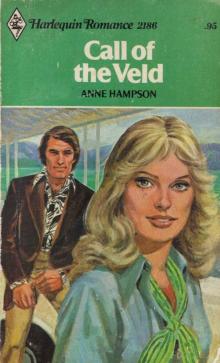 Anne Hampson - Call of The Veld
Anne Hampson - Call of The Veld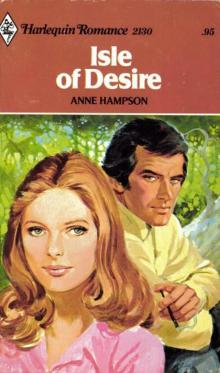 Isle of Desire
Isle of Desire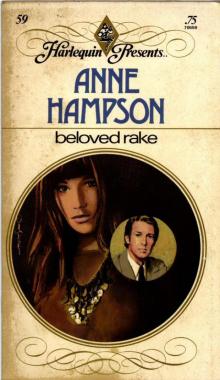 Beloved Rake
Beloved Rake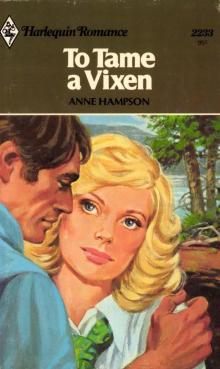 To Tame a Vixen
To Tame a Vixen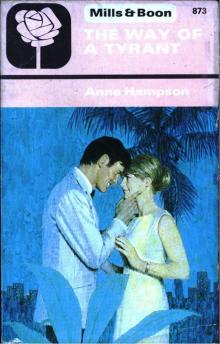 The Way of a Tyrant
The Way of a Tyrant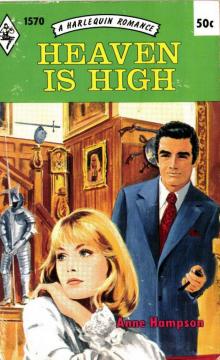 Heaven is High
Heaven is High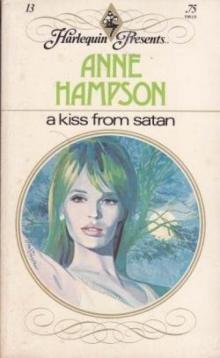 A Kiss From Satan
A Kiss From Satan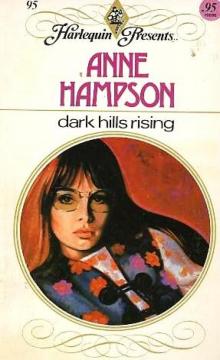 Dark Hills Rising
Dark Hills Rising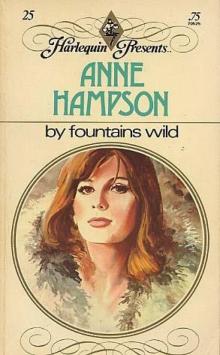 By Fountains Wild
By Fountains Wild Second Tomorrow
Second Tomorrow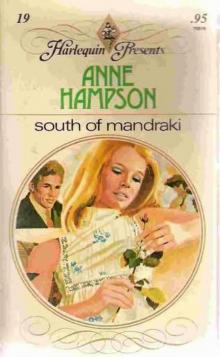 South of Mandraki
South of Mandraki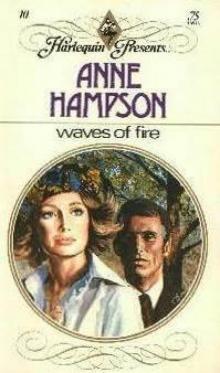 Waves of Fire
Waves of Fire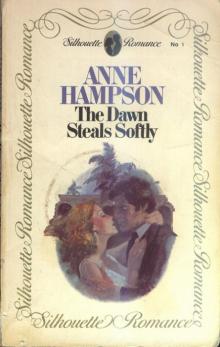 The Dawn Steals Softly
The Dawn Steals Softly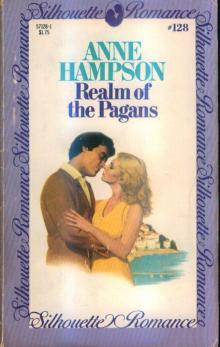 Realm of the Pagans
Realm of the Pagans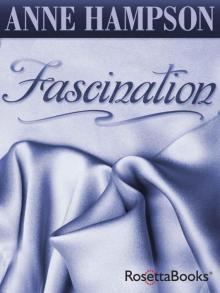 Fascination
Fascination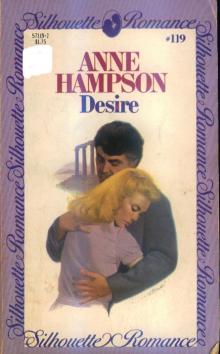 Desire
Desire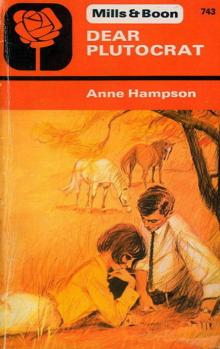 Dear Plutocrat
Dear Plutocrat Strangers May Marry
Strangers May Marry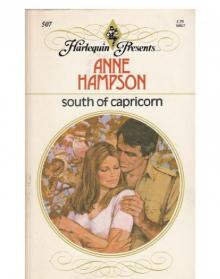 South of Capricorn
South of Capricorn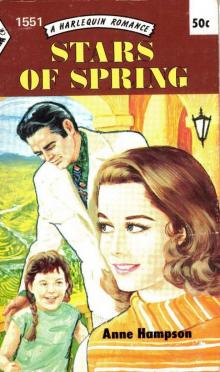 Stars of Spring
Stars of Spring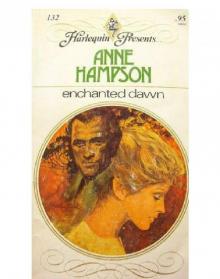 Enchanted Dawn
Enchanted Dawn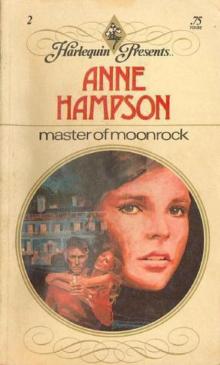 Master of Moonrock
Master of Moonrock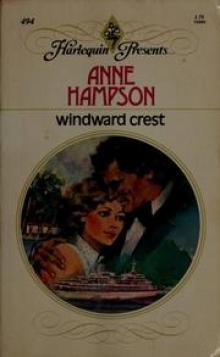 Windward Crest
Windward Crest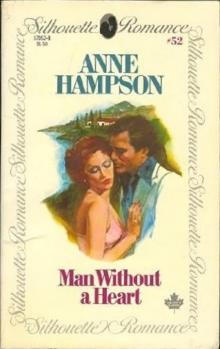 Man Without a Heart
Man Without a Heart